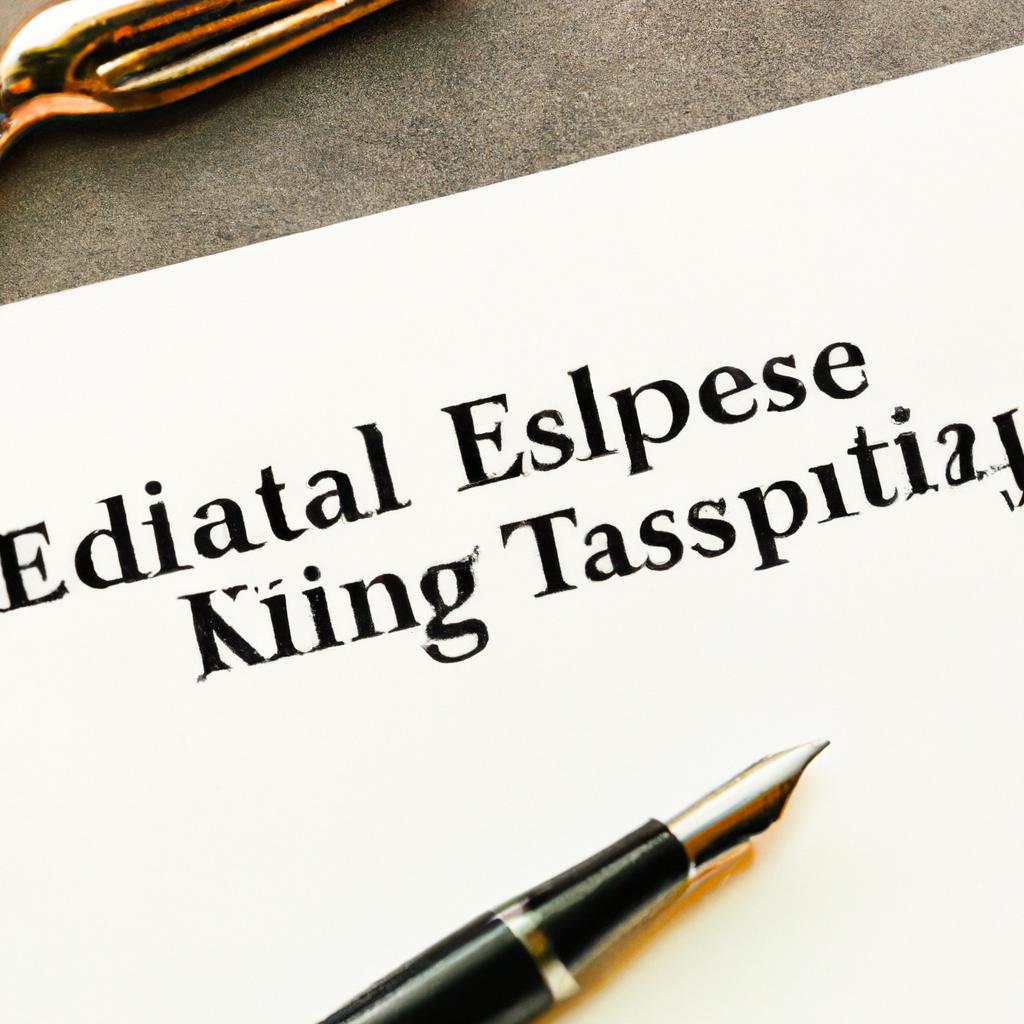Navigating the complexities of estate planning and probate after the death of a loved one can be a daunting and overwhelming process. At Morgan Legal Group, we understand the importance of ensuring that a deceased individual’s estate is managed and distributed in accordance with their wishes and the law. Our experienced team of legal professionals in New York City specializes in estate planning, probate, elder law, Wills, and trusts, providing comprehensive guidance and support to help you navigate the intricate legal landscape and ensure a smooth transition of assets and property. Let us assist you in effectively managing and protecting your estate after death.
Understanding the Probate Process in New York
New York’s probate process can be complex and overwhelming, especially during a time of grieving. At Morgan Legal Group, we understand the challenges that come with handling an estate after a loved one’s passing. Our team of experienced attorneys is here to guide you through the probate process with care and compassion.
During the probate process, it’s crucial to understand the legal requirements and deadlines involved. Our attorneys have extensive knowledge of New York’s probate laws and can help you navigate through the paperwork and court proceedings. We will work tirelessly to ensure that your loved one’s final wishes are carried out in accordance with the law.

Key Considerations for Estate Planning in New York
When it comes to estate planning in New York, there are several important factors to keep in mind to ensure your assets are distributed according to your wishes after your passing. One key consideration is the importance of creating a comprehensive Will that clearly outlines how you wish your assets to be divided among your beneficiaries. Without a Will, your estate may be subject to the laws of intestacy, which can result in assets being distributed in a way that may not align with your wishes.
Another important consideration is the use of trusts in estate planning. Trusts can be a valuable tool for protecting assets, minimizing estate taxes, and providing for loved ones after your passing. By establishing trusts, you can ensure that your assets are managed and distributed according to your specifications. Additionally, it is important to review and update your estate plan regularly to account for any changes in your financial or familial situation.

Strategies for Minimizing Estate Taxes in New York
When planning your estate in New York, it is essential to consider strategies for minimizing estate taxes to ensure that your loved ones receive the maximum benefit from your assets. One effective method is to establish a trust, such as a revocable living trust, that can help reduce the taxable value of your estate. By transferring assets into the trust, you can potentially lower the amount subject to estate taxes.
Another strategy is to make gifts during your lifetime to reduce the overall value of your estate. In New York, gifts are subject to a separate gift tax, but utilizing the annual gift tax exclusion and lifetime gift tax exemption can help lower your taxable estate. Additionally, taking advantage of the marital deduction can allow assets to pass tax-free to a surviving spouse. Proper estate planning with the guidance of a knowledgeable attorney can help you navigate these complex issues and create a plan that minimizes estate taxes.

Navigating Complexities of Trust Administration in New York City
When it comes to navigating the complexities of trust administration in New York City, it can be a daunting task to handle after the death of a loved one. Managing a trust requires a careful understanding of the legal processes involved to ensure that the wishes of the deceased are properly carried out. At Morgan Legal Group, we specialize in providing expert guidance and support to clients who are dealing with trust administration issues.
Our team of experienced attorneys has a deep understanding of the laws and regulations surrounding trust administration in New York City. We can assist you with various aspects of trust administration, including asset distribution, legal documentation, tax implications, and more. With our expertise and guidance, you can navigate the complexities of trust administration with confidence and peace of mind.
Q&A
Q: What happens to a person’s estate after they pass away?
A: After someone dies, their estate – consisting of assets, debts, and possessions – must be distributed according to their will or state laws.
Q: How can I ensure my estate is taken care of properly after my death?
A: It’s important to create a will that clearly outlines your wishes for the distribution of your assets and appoint an executor to carry out your wishes.
Q: What is probate and do all estates have to go through it?
A: Probate is the legal process of proving a will and distributing assets. Not all estates have to go through probate; it depends on the size of the estate and how assets are titled.
Q: Can I contest a will if I feel it does not accurately reflect the deceased person’s wishes?
A: Yes, you can contest a will if you believe it is invalid or if you have reason to believe the deceased was coerced or lacked mental capacity when creating it.
Q: How can I minimize estate taxes for my heirs?
A: Consulting with a tax professional or estate planner can help you develop a plan to minimize the tax burden on your heirs through gifting, trust funds, and other strategies.
Q: What if the deceased person did not leave a will – how will their estate be handled?
A: In cases where someone dies intestate, state laws dictate how their estate will be distributed, typically prioritizing spouses, children, and other close relatives.
Q: How can I ensure my loved ones have access to my digital assets after I die?
A: It’s important to include instructions for accessing and managing digital assets in your will or estate plan, including passwords and account information.
Q: What steps should I take to make the estate administration process smoother for my loved ones?
A: Organizing your financial documents, making a comprehensive list of assets and debts, and communicating your wishes clearly to your loved ones can help streamline the estate administration process.
In Summary
As we navigate the complexities of life and prepare for the inevitable, it is comforting to know that we can seek assistance in managing our estate after death. By understanding the various options available and seeking professional guidance, we can ensure that our loved ones are taken care of and our final wishes are carried out. Remember, you are not alone in this process. Seeking help with estate planning can provide peace of mind and support during a difficult time. Here’s to a smooth transition and a legacy that endures for generations to come.
 Help with Estate After Death: A Comprehensive Guide
Help with Estate After Death: A Comprehensive Guide
The passing away of a loved one is a difficult and emotional time. Along with dealing with the loss, there are practical and legal matters that need to be taken care of. One of the most important of these is handling the estate of the deceased. While this process may seem overwhelming, getting help with estate after death can make it more manageable. In this article, we will discuss what estate after death is, why it is important to seek help, and where to find the best resources for assistance.
What is Estate After Death?
Estate after death refers to the assets, belongings, and debts left behind by a person after they pass away. This can include, but is not limited to, properties, bank accounts, investments, personal belongings, and outstanding loans. The process of dealing with these assets and debts is known as estate administration or probate. It involves identifying and valuing the assets, paying any outstanding debts, and distributing the remaining assets to the beneficiaries or heirs of the deceased.
Why Get Help with Estate After Death?
Dealing with estate after death can be a time-consuming and complex process. It requires knowledge of legal and financial matters, as well as thorough understanding of the deceased’s assets and debts. Even if the deceased had a will in place, the probate process can be overwhelming for the executor of the will. This is where getting help with estate after death can be beneficial.
1. Legal Guidance: Hiring a lawyer who specializes in estate planning and administration can provide valuable legal guidance. They can ensure that all legal requirements are met and assist with any disputes or complications that may arise during the probate process.
2. Financial Assistance: An accountant or financial advisor can provide assistance with identifying and valuing the assets and debts of the deceased. They can also handle the tax implications of the estate, ensuring that all tax payments are properly accounted for during the probate process.
3. Emotional Support: Dealing with estate after death can be emotionally taxing for the executor and the family members of the deceased. Seeking help from a support group or therapist can help cope with the emotional toll of the process.
Where to Find Help with Estate After Death?
1. Probate Courts: If the deceased had a will in place, it is likely that the will needs to go through probate court. The court can provide guidance on the process and may also have forms and resources available for the executor. Additionally, probate court may appoint a personal representative to assist with the probate process if needed.
2. Estate Planning Attorney: As mentioned before, an estate planning attorney can provide valuable legal guidance and assist with the probate process. They can also review the will or help with drafting one if the deceased did not have one in place.
3. Financial Advisor: A financial advisor can help with the valuation of assets and debts and ensure that all financial matters related to the estate are handled correctly.
4. Support Groups: There are several grief counseling and support groups available for individuals dealing with the loss of a loved one. These groups provide emotional support and can also offer valuable resources for dealing with the practical aspects of estate after death.
5. Online Resources: There are various online resources available that provide guidance, forms, and templates for dealing with estate after death. These resources can be helpful for individuals who may not need full legal or financial assistance with the process.
In Conclusion
Dealing with estate after death can be a difficult and emotional process. Seeking help from qualified professionals and utilizing available resources can make the process more manageable. It is important to keep in mind that estate administration is a legal process and should be handled with care and attention to detail. By getting help with estate after death, you can ensure that the wishes of your loved one are respected and their estate is distributed according to their wishes.

